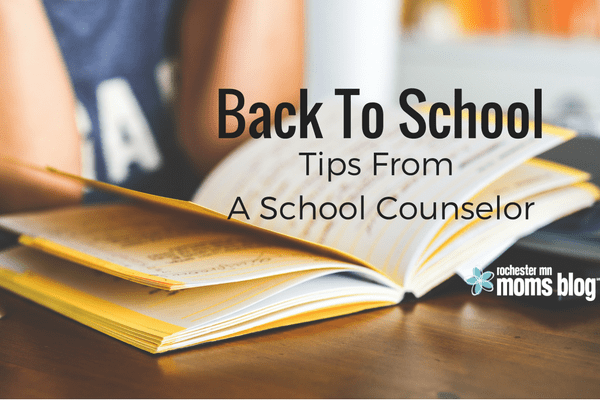As a local high school counselor, I see the cumulative years of elementary, middle and high school education come full circle. Parents, educators, peers, media, sports/activities, society, etc. all play an integral part in molding every student who sits across my desk. One thing I have learned throughout the years is that often what a student thinks is the most important part of their education or their formidable years is not what necessarily defines them now and/or later in life. These years are meant for learning, meant for trial and error and most importantly, meant for foundation building. How we, as moms, aid in building that foundation is a critical part of our jobs.
Here are some “back to school” tips that I (as both a school counselor AND mom) want to share with families and communities:
GRADES
Are grades important? Absolutely. Can grades determine entrance into a particular college? Unfortunately, yes. Do grades solely define who a student is? This is and always will be a definitive NO. Please remember that striving to do one’s best is a lifelong lesson and goal that builds character and will likely help your child land the job of their dreams. But falling short every once in awhile, and reflecting on and learning from the situation also builds character. And resiliency.
In a recent statement from a former Stanford dean, he was quoted as saying that every 18-year-old must be able to cope with ups and downs. In other words, striving for and maintaining total perfection does little in the way of learning coping strategies. It also does not paint a realistic picture for your child’s future, as we all know that failure is a natural part of life. Incidentally, the former Stanford dean also said that every 18-year-old must know how to take risks. In my opinion, getting a “B” in AP Chemistry does nothing but show that your child took a risk by taking a hard class AND got a solid grade.
HOMEWORK
While I understand that homework is a required aspect of high school and has consequences attached to it, I would encourage parents to consider limiting time spent on homework as much as you feel comfortable with at the elementary and middle school levels. I realize this may be a controversial thing to suggest, but the research is increasingly showing us that completing homework does not directly correlate with an increase in grades, depth of knowledge, or student responsibility and determination. As there are obvious benefits to homework completion, it is not as black and white as once thought.
I would strongly encourage families to choose other things that build foundation, responsibility, and determination, i.e., eating dinner as a family, encouraging play that requires imaginative thought, spending time outdoors, sharing in the chores and other household responsibilities, and resting. We undoubtedly need more time for kids to be kids – please embrace that and protect that.
MENTAL HEALTH
Mental health concerns are on the rise. Pressures to do well in school and get into competitive colleges are at an all time high. Students feel pressure from their parents, peers and society. In addition, the constant connection to the outside world through handheld devices can cause great anxiety, as students feel the strain to look a certain way, have particular items, and be superhuman. The constant comparison of self to others leads to a compromised self-efficacy that is damaging to adolescent brains. Cyberbullying is also at an all-time high and is severely troublesome for adolescents to navigate, as they often feel like they cannot escape it and will feel the backlash if they bring it to an adult’s attention.
Ugh, the list feels daunting and unfortunately, it’s just the tip of the iceberg. The important thing to remember is that your child’s mental health is paramount. And because we know that the adolescent brain is still developing and changing well into our twenties, it is critical that we help guide our students through conflict and challenges with a healthy and supportive lens. Please talk to your children and seek to understand what makes them tick. And when you have concerns about their mental health, please PLEASE do not hesitate to ask for help. It is also okay AND recommended to require device-free time at home when your children are alone and spending time with their families. We all need time to disconnect, and frankly, our children need it more.
Overall, I think it is important to remember that our children are in a fluid state right now – nothing is permanent and nothing is fixed. Please remind your children to strive to learn and grow and to reach their maximum potential, but also not at the sake of having fun and compromising their mental health. These are years our children will never get back, and a healthy foundation now will most likely result in healthy habits later.





